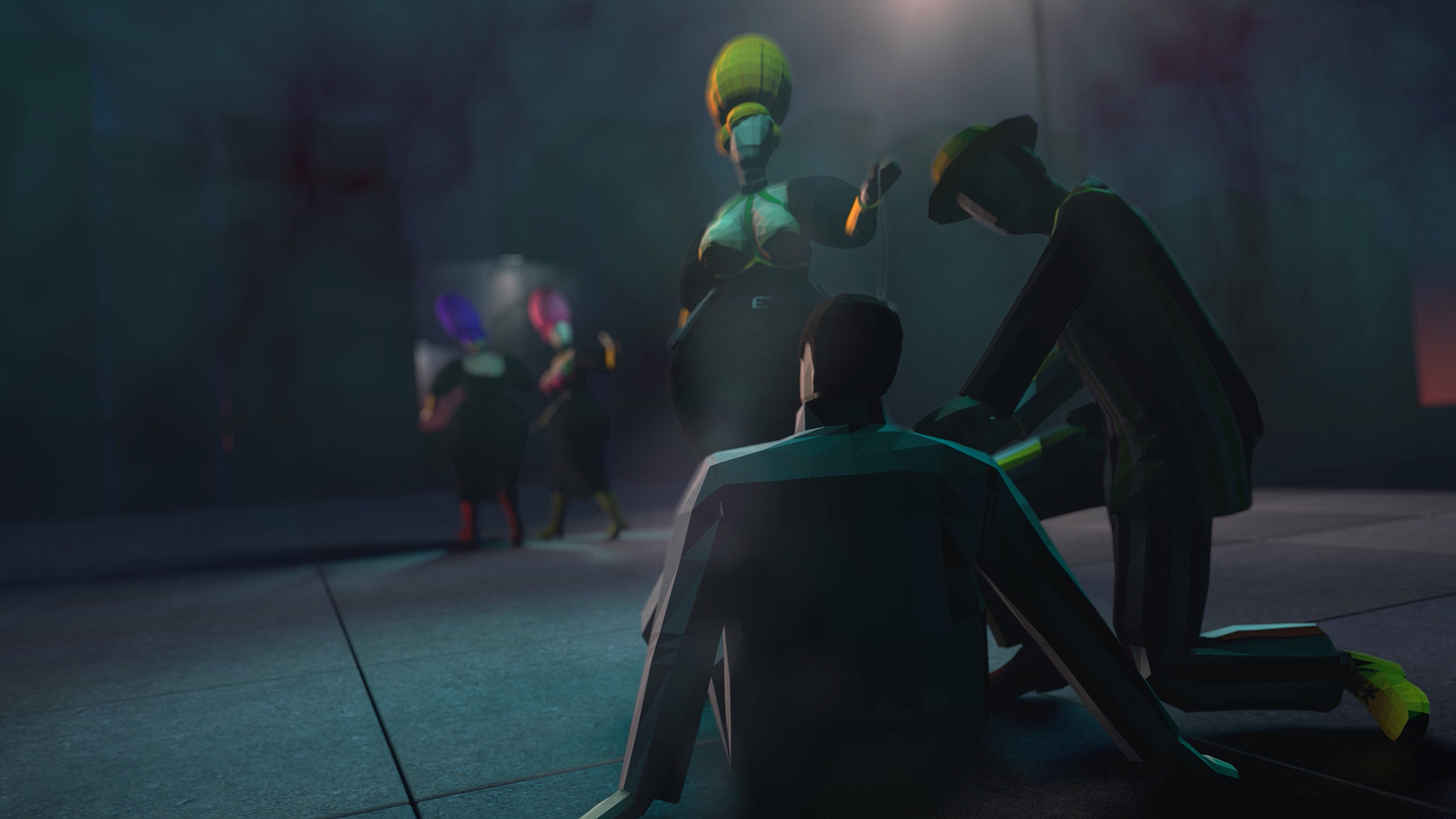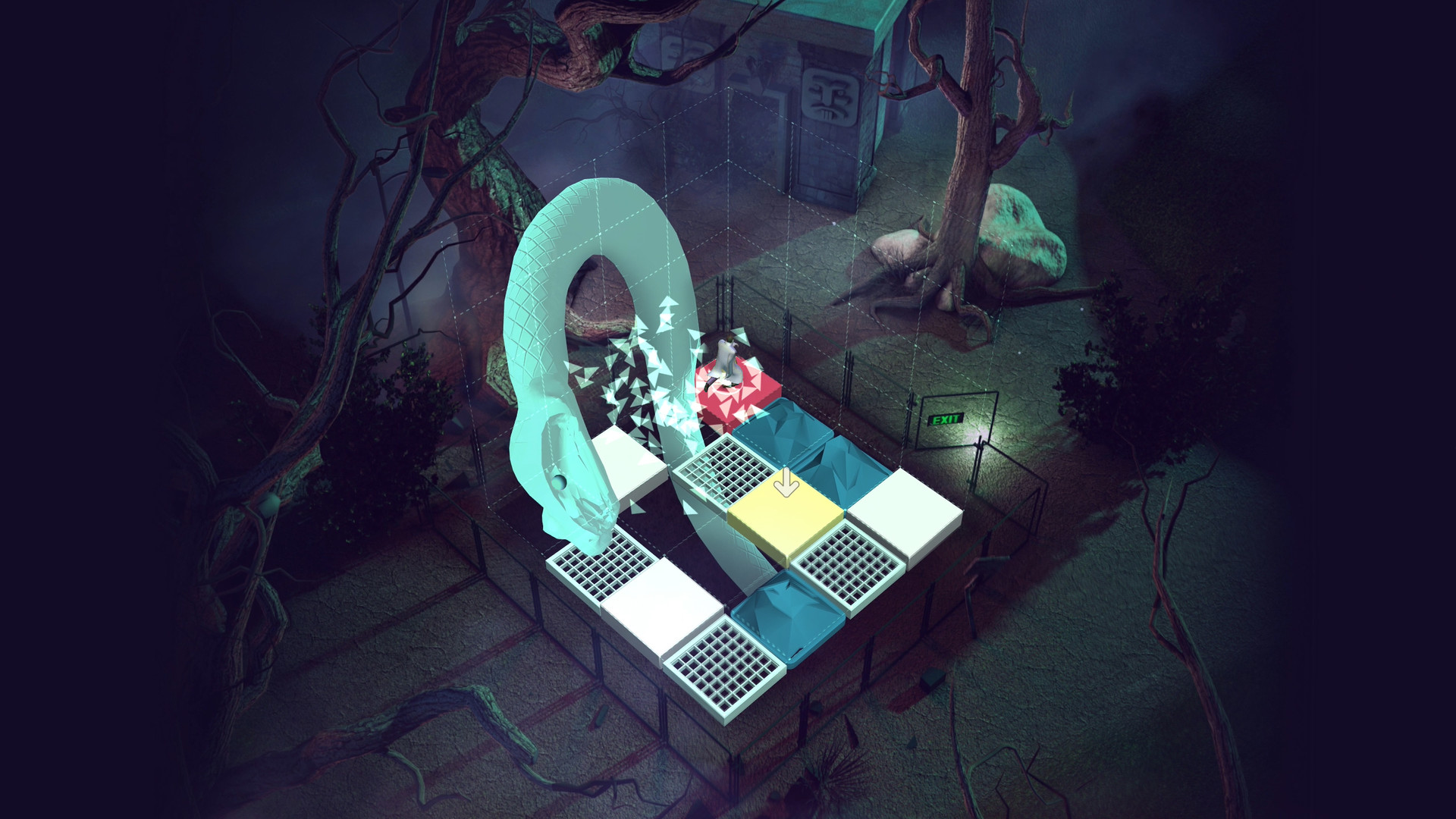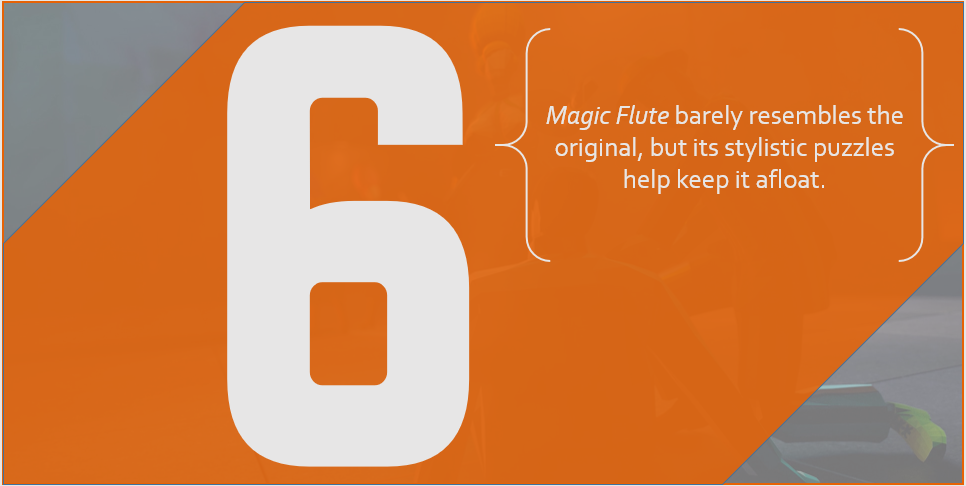Magic Flute takes Mozart to Neo-Tokyo
My first time attending a performance of Mozart’s The Magic Flute was something of a defining experience, though the reasons have less to do with the play than they do this particular performance and my…anatomical development at the time. Around halfway through a large dance began (what the actual scene was I couldn’t say), during which roughly a dozen women stripped off their jackets as they performed a line-dance in only sports bras. My mother was appalled, but being myself a sheltered, hormonally overrun preteen, I began to pay significantly more attention to a play I had been nearly sleeping through moments before. It certainly wouldn’t be the most scandalous encounter I’d have with my burgeoning feelings of sexual attraction, though it seems oddly fitting that one of my earliest experiences would involve The Magic Flute, a play which, in many ways, is itself about sex. Mozart may have wrapped that fact within a family-friendly fairytale coating, but ultimately nearly every key plot point can be linked to sex and attraction, and the implications Mozart chose to make about them therein.

Tamino’s love for Pamina is almost entirely based on physical attraction, and he himself is saved from the serpent of the first act on account of his good looks. Monostatos’ character is effectively a shell of unrestrained sexual urges, and his downfall is in some ways a bigger condemnation of premarital relations than his near assault of Pamina (The Magic Flute is nothing if not a sexist product of its time). Act 2 even features a scene in which Tamino and Papageno are sworn to silence, lest they be led astray by the women seeking to mislead them. It’s all a bit of a mess when viewed through modern eyes, but that has done little to curb The Magic Flute’s popularity.
Magic Flute is less interested in exploring its source material than it is transforming it into logic puzzles.
How exactly does this wrap around to Magic Flute the game? Well, in most ways it doesn’t. Though it shares its name, characters, and music, LabLike’s block sliding puzzler shares little thematic ground with Mozart's opera. Magic Flute is far less interested in exploring the romantic elements of its source material than it is in adapting its scenes (“adaption” being a very generous designation) into tile-based logic puzzles.
I hesitate to say that Magic Flute actually shares the same plot as its progenitor, as its narrative is so thinly told that even being familiar with The Magic Flute I struggled to follow it. Some of Magic Flute’s incoherent storytelling may stem from it being in large part an adaptation of an adaptation, influenced as much by Mozart’s The Magic Flute as Amon Miyamoto’s video game inspired retelling of it, from which Magic Flute takes its low-poly art design and Neo-Toyko setting. Magic Flute is easily among the most creative revisions of the play that I have witnessed to date, but it strays so far from the original that at some point it is hard to say if the elements it does borrow from The Magic Flute are warranted or justified.

Much of these concerns fall away while solving Magic Flute’s puzzles, being themselves so abstract as to create a suitable distance between their designs and the bizarre echo of a past work that exists in the game’s cutscenes and narration. LabLike hasn’t reinvented the sliding puzzle, but their reworking of it is suitably engaging, if clumsily implemented. Magic Flute’s style allows its puzzles to succeed without an abundance of complexity or variance. They leave little impression, but the act of successfully navigating through the mazes you construct by shifting various types of blocks around is entertaining in itself.
The fun is lessened when Magic Flute asks you to navigate multiple characters through a single level, though, as the single input interface allows for an astounding amount of error, as the same button used to move is also used to change characters depending on where you click. It isn’t a game-breaking issue, but it caused me to fumble around and flub solutions often enough that I began to truly detest the game’s minimal control scheme.
Final Word
Accounting for only the first act of The Magic Flute, it seems safe to say that LabLike has more planned for their tiny offspring of a renowned work. And I’ll be happy to see it, even if what is currently here is more intriguing oddity than anything I would call a suitable first exposure to The Magic Flute proper. Magic Flute almost certainly will not stick with me the same way my experience watching the play did, but I enjoyed it enough to hope it stays in my memory well enough that I’ll remember to return when its second act arrives (which at this point is not seeming incredibly likely, but I am keeping my fingers crossed).


